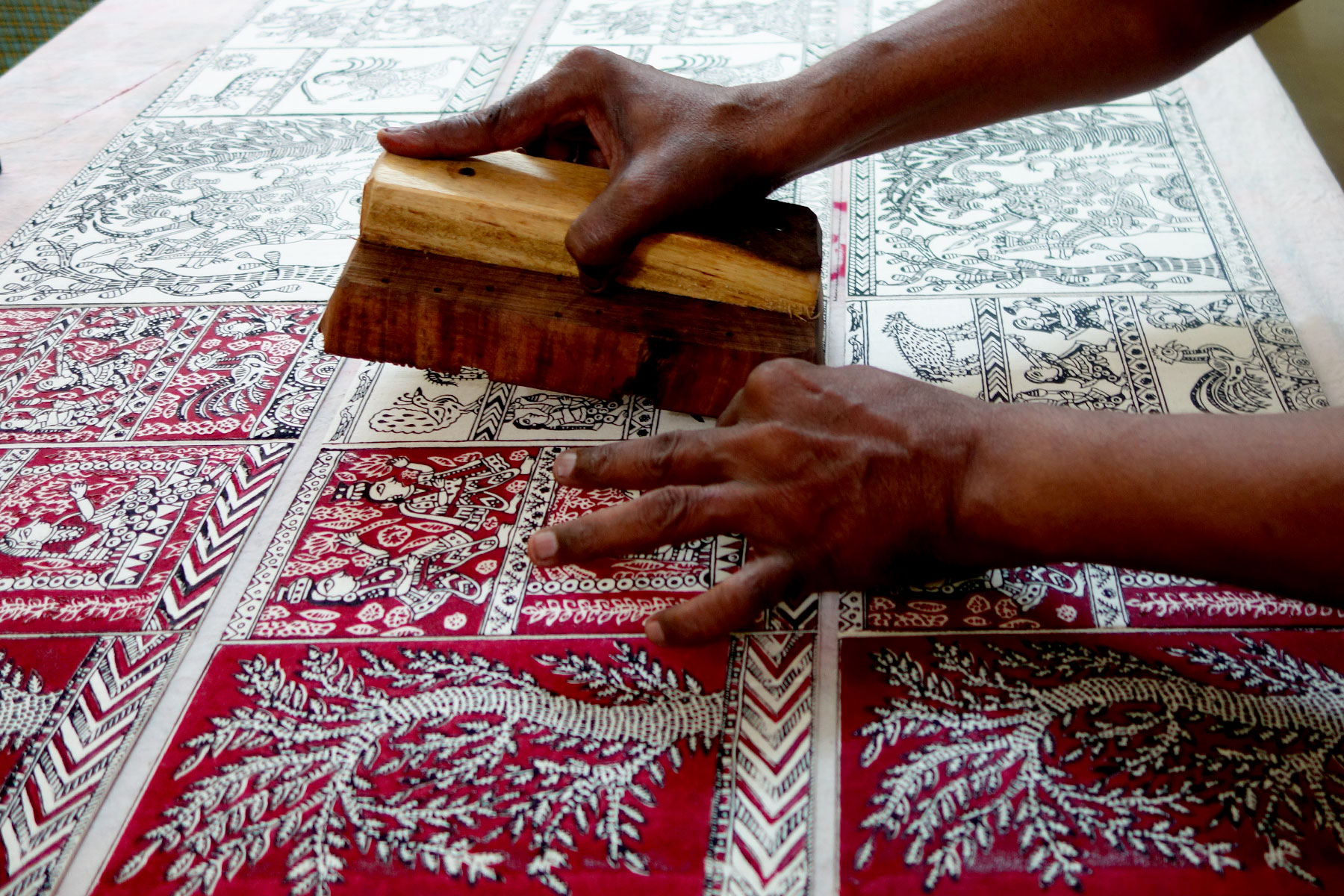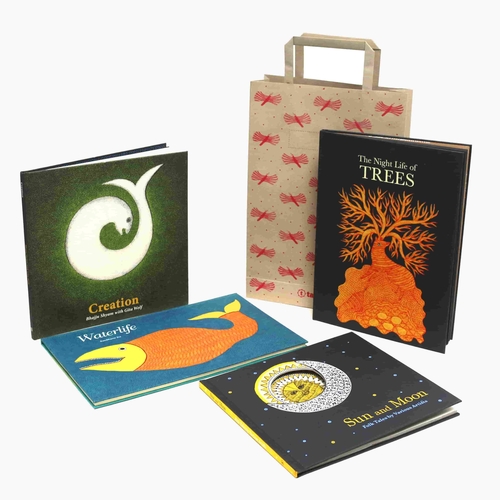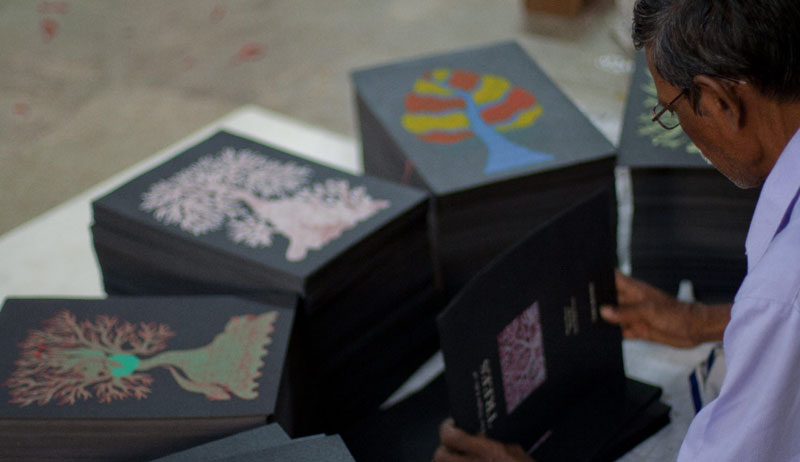14 Feb The Cloth of the Mother Goddess – From Ritual Art to Cloth Book
By Gita WolfThe connection of skill and labour to art making has always interested us. We’re curious not only about the aesthetic and philosophical aspects of traditional art, but equally in its connection to artisanal practices, the craft that goes into giving it a physical form. In the case of Mata-Ni-Pachedi, this involves painting, block-printing and dyeing techniques which are painstaking, requiring skill and experience. This kind of artisanal knowledge is profound and priceless, but it is not valued highly, and seen more as a sequence of repetitive tasks learned through apprenticeship. Instead of holding artisanal practices against the mirror of industrial manufacture — or seeing them as distinct from art-making — we’d like to connect them intrinsically to the creative process.




